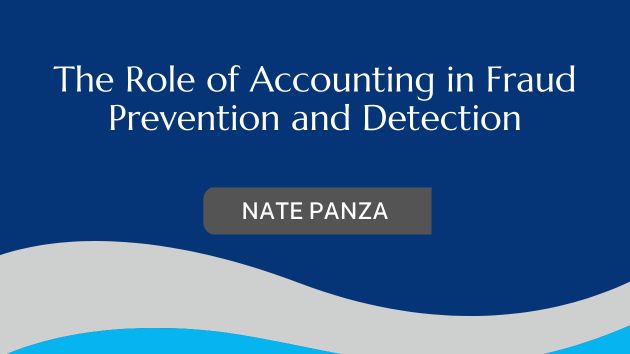Fraud is a pervasive threat in the business world, costing companies billions of dollars annually. From small businesses to large corporations, the risk of financial fraud can have severe implications, including economic losses, damaged reputations, and even legal consequences. Accounting plays a critical role in preventing and detecting fraud, which is the backbone of a company’s financial integrity. Here’s how accounting professionals and systems contribute to safeguarding businesses from fraudulent activities.
1. Implementing Internal Controls
One of the primary roles of accounting in fraud prevention is establishing and maintaining internal controls. Internal controls are policies and procedures designed to ensure the accuracy and reliability of financial reporting, safeguard assets, and prevent unauthorized activities. Accountants develop and implement these controls, such as segregation of duties, approval processes, and reconciliation procedures, to reduce opportunities for fraud. For instance, separating responsibilities so that no single individual handles all aspects of a financial transaction minimizes the risk of fraudulent activities going undetected.
2. Conducting Regular Audits
Audits are a vital tool in both preventing and detecting fraud. Through regular internal and external audits, accountants can identify discrepancies, irregularities, or anomalies in financial records that may indicate fraudulent activity. Audits serve as a deterrent to fraud by creating a sense of accountability and transparency within the organization. External audits conducted by independent third parties provide an additional layer of scrutiny, ensuring that financial statements are accurate and comply with regulatory standards.
3. Monitoring Financial Transactions
Accountants play a crucial role in monitoring financial transactions for signs of fraud. By regularly reviewing transactions, they can spot unusual patterns, such as large or frequent cash withdrawals, unauthorized transfers, or discrepancies between recorded and actual inventory levels. Advanced accounting systems with data analytics tools can help automate this process, allowing for real-time monitoring and more efficient detection of suspicious activities. This proactive approach enables companies to address potential issues before they escalate into significant problems.
4. Ensuring Compliance with Regulations
Accounting professionals ensure that a company complies with relevant financial regulations and standards. Adherence to rules such as the Sarbanes-Oxley Act, which mandates stringent internal controls and financial reporting requirements, is essential in preventing fraud. Accountants must stay updated on regulation changes and implement necessary adjustments to the company’s financial practices. Compliance reduces the risk of fraud and protects the company from legal penalties and reputational damage.
5. Educating and Training Employees
Employee education and awareness are critical components of fraud prevention. Accountants often lead efforts to educate employees about the importance of ethical behavior, the company’s fraud policies, and how to recognize and report suspicious activities. Training programs focusing on fraud awareness can help create a culture of honesty and integrity within the organization, making it harder for fraudulent activities to go unnoticed. When employees understand the severe consequences of fraud and feel empowered to report concerns, the overall risk of fraud diminishes.
6. Investigating Fraud Allegations
When fraud is suspected or detected, accountants are often at the forefront of the investigation. They analyze financial records, trace the flow of funds, and identify the methods used to perpetrate the fraud. Accountants may work closely with legal teams, forensic accountants, and law enforcement to gather evidence and build a case against the perpetrators. Their expertise in understanding financial data is crucial in unraveling complex schemes and ensuring justice is served.
Conclusion
The role of accounting in fraud prevention and detection cannot be overstated. Accountants are the gatekeepers of financial integrity, employing internal controls, audits, transaction monitoring, regulatory compliance, employee education, and investigations to protect businesses from fraudulent activities. By leveraging their expertise and the latest technological tools, accounting professionals help create a secure financial environment that minimizes the risk of fraud and ensures the organisation’s long-term success.

